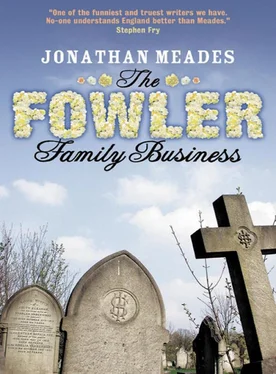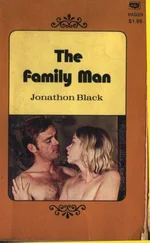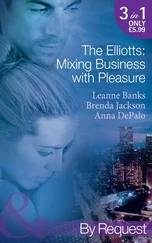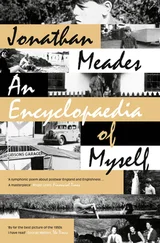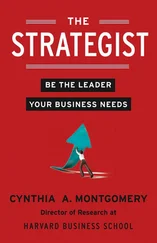And there were no seat-belts then, no collapsible steering columns, no impact-triggered air bolsters fighting for space like naked fatties. There was no obligation on motorcyclists to wear helmets. The first British motorways – the very name acknowledges the unsuitability of previous roads – were being dug and levelled when Mr Fowler was in his prime. In his old age he was sad but philosophical about the diminution in road deaths effected by motorways and about the decline of ‘random culling’, an epithet which, as a child, Henry believed to be in general use rather than specific to his father. ‘It’s Nature’s way. Nature always finds a way. War, disease, pogroms, the South Circular, a faulty earth. You make the place too safe and, well – it’s not just the trade that’s going to feel it. The world’ll be full of old ’uns. Miserable old parties like yours truly … Life was meant to be a banana skin. Look at the Bible, my lad.’
The week the Ml opened Mr Croney took Stanley and Henry for a drive up it. He couldn’t get the hang of the lanes, but neither could the rest of the grockles – this road was not a utility but a site to see, a novelty attraction to participate in. Every car was filled with children agape at the infantile simplicity of the enterprise, children who recognised that their solemnly playful way of making a road had been borrowed by grown-ups. Here was a model road whose scale had been multiplied by giants. It was so obvious, it was so uncompromising in its totalitarian certainty. It had started from zero. It was the road to the future which was already here, in Herts and Bucks. In the future there were picnickers on a December hard shoulder. They were scudding along part of the apparatus that would take them to the moon. Stanley, who dreamed of becoming a pilot, would by 1980 be an old moon hand, a veteran of weekly trips. Henry, who never considered any trade other than the family’s, would by 1980 be burying people on the moon, if, by 1980, people didn’t live for ever. Tomorrow: monorails. The day after tomorrow: the defeat of gravity. All mankind will be happy and there will be no lapels. Our shoes will shine for ever. The Queen’s means of transport will allow her to visit every one of her subjects each year for a cup of rehydre and a chat.
Mr Croney couldn’t wait to leave the future behind and get back to the roads of the present. He slowed in the outside lane indicating right (he was not the only one to do so). It was obvious to the boys, who had never driven, how to exit from the most exciting road they had seen. By the time he had veered across to the nearside lane complaining of a life sentence on this bloody road he was sweating and tetchy. At last he succeeded in getting off it. They crossed a bridge where children stood waving Union flags at the adventurers below. Mr Croney unscrewed the top of his pigskin-covered flask and swigged, relieved, steering with one hand, muttering: ‘Now this is what I call a road. The MI’ll never catch on you know.’
Stanley and Henry knew that overhanging bushes and muddy verges and drunken curves would be eliminated by their generation. Mr Croney drove down labyrinthine lanes and parked on the gravel outside a pub with a red sign and plenty of two-tone cars (baby blue and cream, carmine and tan). ‘Church,’ announced Mr Croney and went inside. The boys knew the form. He soon reappeared with crisps and ginger beer for them to share in the car. ‘I want real beer, Dad – this is for kids.’
Henry was shocked by Stanley’s brashness. He’d never dare make such a demand of his father. He was puzzled too by Mr Croney’s resigned acquiescence: he returned a few minutes later with two bottles of beer and a couple of pork pies. Stanley, enthused by the motorway and comparing it to American highways, hardly thanked his father but took the bottles and said to Henry: ‘I’ll have yours. You don’t want it do you?’ Stanley put his new grey winkle-pickers on the dashboard and lounged with proprietorial abandon listing the attractions of America which is where he would live when he was a pilot: ‘They all go on the first date … fantastic money even before you’ve finished training … square watches … record-players in cars … open-plan houses …’ Henry sat on the back seat masticating the pie’s pink meat. Stanley lobbed his from the window: ‘Electric windows … amazing jeans. It’s the country of the foreseeable future,’ he said, repeating a magazine headline.
Henry’s foreseeable future was already mapped out within a three-mile radius of the old Crystal Palace which his father had watched burn down in 1936, ‘a tragic night for Sydenham, son.’ But then Stanley had no family business to take over, so had to make amends. Besides, for Henry America was the country of the past, of Custer and Wyatt Earp and Jesse James and William Bonney whose head he had cut off more than a dozen times and whose photograph – was he left-handed or had the print been made back to front? – he had shown to his father who told him: ‘That’s an Irish face. A bad Irish face, a wicked face. Never trust that sort of face, Henry – bad blood, bad genes.’
When Mr Croney came out of the pub he smelled of whisky. His friend Maureen smelled of perfume made from boiled sweets.
‘I’m more of a Mo than a Maureen.’ She squeezed on to the front bench seat between Stanley and Mr Croney. She smiled at Henry. She was no oil painting, more a distemper job. She had a puffy pub-diet complexion but was thin with it. There were the ghosts of bruises round her eyes. Her lipstick didn’t confine itself to her lips.
‘Just giving Maureen a lift home, fellers. Her mum’s come over bad.’
‘Mo.’
Henry watched her gnawed, knotted fur collar ride high over the seat back as she twisted to touch Mr Croney’s thigh. Stanley turned to Henry and winked. Mr Croney reciprocated her gesture, close to where the gear lever would have been had it not been on the steering column. Mo giggled. Henry had her straight off as a disrespectful daughter, out cavorting whilst her mother suffered stomach cramps or whatever, whilst the old lady hawked and spluttered and gasped for breath. The car crunched gravel. They were off on their mercy mission.
Mo’s way of showing proper concern for her mother seemed inappropriate to Henry. He considered that it lacked decorum. She sang. She knew all the songs. Her songbook memory stretched back to Henry’s earliest memory of what Mr Fowler called the Light Pogrom. Her voice was true, fluid, banal. She could do husky too. She loved a big, powerful, meaningful ballad. She was more herself when she was Denis Lotis or Lisa Rosa or David Whitfield than when she was Maureen nicknamed Mo.
When she was Mo she was a pub belter, so loud that Mr Croney told her to go easy for the sake of their eardrums, whereupon she exposed a wedge of slimy grey-pink mucous membrane and wiped his ear with its tip. She withdrew it into her mouth and sang ‘Que sera sera ’ with a giggle. Stanley joined in: Henry felt left out, in the back – he wasn’t part of the party. He felt that even before Mo called him ‘a quiet one’ in a testily admonitory tone and Stanley neglected to speak up for him. Later, as they drove through a town with a swollen river and formal public gardens, Stanley listed for Mo what he aspired to wear: Aqua Velva, a burnt-in parting, almond-toe Densons, Cambridge-blue trousers with a fourteen-inch cuff.
‘And he wants a white mac don’t you, Stanny … That’ll turn the birds’ heads. What you think Mo?’
‘Oh it’d suit him ever so.’
Henry wondered where such sartorial licence would end. He knew, because his father had told him so, that the sort of clothes Stanley would be wearing after Christmas were wrong – which is why he kept his copy of the Denson shoes catalogue with his copies of Kamera and QT and Spick , hidden beneath toys he’d grown out of. He didn’t want to own that catalogue any more than he wanted to own those corrupting photographs – but both shoes and flesh shared a lubriciousness, both belonged to the forbidden world of sleek sinuousness. He was ashamed of his thraldom to it, of how it might taint him, of how those possessions debased him, of how they represented the threshold of sinfulness, of how they made him betray the trust of his parents. He was used to the complicity between Stanley and Mr Croney, to their familiarity: it was so unlike the proper relationship he enjoyed with his father. He envied Stanley, yet despised Mr Croney’s laxity.
Читать дальше
